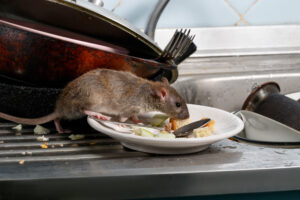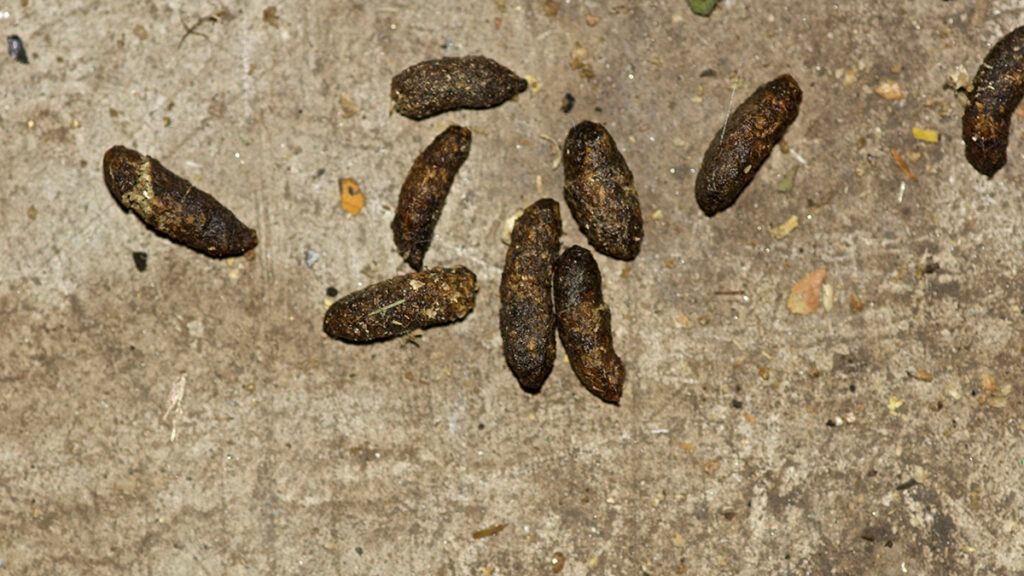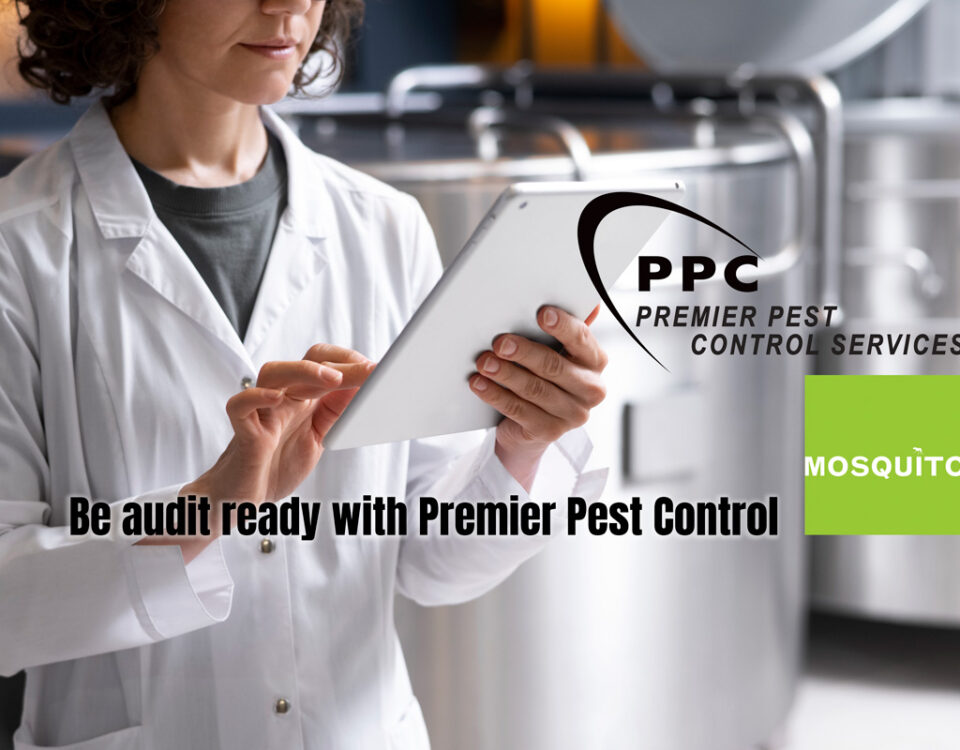SEAGULLS ARE PESTS!
August 27, 2020
Celebrating Excellence: Premier Pest Control Excels in BPCA Audit
November 13, 2023All about Rats!
It’s difficult to know how many rats there are in the UK, with estimates putting the number anywhere between 10.5 million and 120 million. A pair of brown rats could potentially produce as many as 200 babies and 2,000 descendants in just one year, maybe more. Rats are social animals, so if you see one rat then there are likely to be more nearby.
In the past, harsh winters were a natural method of culling those numbers. Milder winters in recent years are thought to have helped rat populations thrive, which is where professional pest control comes in.
The dangers: why we control rats
Rats communicate and mark their territory by urinating everywhere they go, representing a significant public health risk. They can carry many nasty diseases, which can spread to humans, normally through rats’ urine or body coming into contact with food preparation areas.
These include:
- Leptospirosis (often referred to as Weil’s disease)
- Salmonella
- Listeria
- Toxoplasma gondii
- Hantavirus.
The problems associated with rats are not just limited to public health. They also have a knack for causing structural damage. Rats have to gnaw in order to keep their teeth in shape, and they’re not shy about what they gnaw on.
Common ‘gnaw-spots’ include the sheathing around electrical cables, which present a significant fire risk, and pipes, which is likely to result in leaks, both water and gas. Cinderblock, wood, metal, bone – rats’ teeth will take on pretty much any challenge, which is why they can cause untold damage to both homes, businesses and the occasional finger. Flooding from gnawed pipes and electrical fires from chewed wires may be associated with rat infestations.
Property owners have a legal obligation to keep premises rodent free, or, if rodents pose a threat to health or property, to report infestations to the local authority. And if a company or organisation has a highly publicised rat problem, then it will heavily impact its reputation. Poor reviews of businesses or products are easily viewed and shared online.

The tell-tale signs that rats are about
A rat spotted running through a restaurant can mean the end of the road for that establishment, while no-one wants to share a hotel swimming pool with a bathing rodent.
And aside from the reputational costs, there are also fines for businesses found to have a pest problem. These usually come at a significant expense and repeat offenders are in danger of facing legal action.
Environmental Health Officers can issue enforcement notices to business owners who don’t have adequate pest management procedures in place.
Rats around the home
It goes without saying that rat infestations can have a devastating impact on personal wellbeing.
Aside from the health risks, the sound of them scuttling around the home, the evidence of their presence and the damage they can cause do little to help householders sleep easy.
How to tell if you have rats

- One of the most common signs that rats have paid a visit is their faeces, which are dark and pellet-shaped, and look like large grains of rice. These tend to be clustered in certain areas, as rats often use the same spot to do their business and can leave up to 40 droppings in one night. It must be all that fibre!
- Another clue can be gnawing marks on electrical cables, woodwork, plastic, brick and lead pipes, as well as torn bags of foodstuff and materials
- In dusty, unused areas of a building, rats often leave footprints or tail marks
- Rats can also leave a more unusual calling card; a greasy residue professionals call ‘smear marks’. Smear marks occur from their coats rubbing on the walls as they make their way along these trails to their nest or in search of food
- You may also be able to hear the rats scratching, gnawing and scuttling around. Brown rats are prone to grinding their teeth and chattering when stressed, both very distinctive sounds. But correct identification is key, as these sounds can also be attributed to a squirrel infestation.
How to prevent rats
Householders can put steps in place to try and avoid a rat infestation.
1. Mind the gap
Eliminate any gaps around pipes and under sheds, as rats only need a gap of 15mm to gain entry to a structure.
You will need to search for any potential entry points and seal these up with wire wool embedded in quick-setting cement.
You should focus on low level gaps first as these are the most likely areas for rats to enter. You can then consider any higher up vents or gaps.
Check around pipes and windows, and double check the basement.
Proofing all means of entry as much as possible will help to prevent an infestation.
2. Tackle nesting
Remove potential nesting sites by keeping yards and gardens clean and tidy, cutting back overgrown areas and clearing any piles of wood or debris.
Compost heaps can also become nesting sites, so our advice is to protect it with wire mesh to prevent rodents digging a harbourage.
3. Think about drains
Ensure that drain inspection covers are in a good state of repair and any disused pipes are sealed off.
4. Feed birds carefully
If you feed garden birds, do not do this to excess and use a bird table or feeder basket if possible, to catch any off cast seed. In urban areas, taking in bird feed at dusk is a way to remove an easy food supply during normal feeding time.
5. Take cover
Cover any household waste where rats can get access to it and close dustbin lids. Recycling containers should also be washed to remove any food residue.
Getting rid of rats
Lifting the lid on refuse collection
On the subject of household waste reports of local authorities seeking to cut back bin collections regularly make the headlines. Frequent bin collections help reduce the likelihood of rat infestations. As such, BPCA recommends local authorities do not reduce bin collections.
Here are our tips for managing waste, to prevent rat infestations.
1. Always keep lids sealed properly
Think about entry points. Even small gaps create easy access for rats – which can squeeze through a space as thin as two fingers.
2. Get broken bins replaced
Make sure any cracked or broken bins are replaced. Ask your local council for a replacement where a bin is damaged.
3. Place bins carefully
Bins offer a great platform for rats to reach new areas, so keep them away from windows and doors.
4. Don’t dump food straight into your wheelie bin
Rats are really good at sniffing out their next meal. Don’t lure them to your bin by placing loose food waste straight in the container. Instead, keep it under wraps with compostable liners, plastic bags or refuse sacks, which will help control smells and make sure it doesn’t stick to the sides of containers.
5. Look after your bins
It’s a good idea to give your indoor and outdoor bins a rinse with disinfectant and hot water. Alternatively, hire a reputable company to do it for you.
Not only will this help with the smell that attracts rats, but it’ll also mean if there are any pathogens brought in by pests, you’ll neutralise them. Always wear gloves!
6. Don’t leave your rubbish out too early
If you don’t have wheelie bins, you may be required to move your waste to the side of the street in black sacks for collection – do so as late as possible, preferably not the night before.
7. Be careful with compost
Keep compost areas well sealed and a good distance from your property. Rats love exposed compost.
DIY rat control
Rats are hard-wired to survive. They are adaptable, highly mobile and breed rapidly. As a result, rat control can be an uphill task for the untrained individual.
For any rat infestation, we would always recommend contacting a professional pest management company, who is a member of the BPCA.
However, members of the public can choose to carry out the work themselves, buying amateur-use rat poisons (rodenticides) and traps from a hardware store or garden centre.
Keep in mind that most rats are wary of new objects such as traps or poisons placed in their environment. They will avoid them for a period before exploring them, so don’t expect instant success with this approach.
Thought needs to be taken when placing poison or traps to ensure they are in a safe and secure place out of reach of non target animals, children and pets.
BPCA has a strong warning to anyone using rodenticides – always follow the instructions on the label, and importantly search for and dispose of any dead rodents in a safe manner.
When poison is consumed by a rat, it is likely that it will die in a cavity or roof space from which a bad smell can emit. If you cannot locate the dead rodent, it may take several weeks for the body to decompose and the smell to dissipate. Leaving these in the open can result in secondary poisoning of non target animals, such as pets or birds scavenging on the carcass.
Professional pest control
For any rat infestation, we would always recommend a professional pest management company, a member of BCPA. They are trained in rat control and will have access to a range of professional use rodenticides and tools, which are not available to the public. Knowing how much, where, and when to deploy products is where professionals are able to take control of situations efficiently. There’s also a growing issue with resistance, due to incorrect choice of rodenticide or widespread use by members of the public.
Professional pest controllers will take an integrated pest management (IPM) approach to tackling your infestation. A pest professional will have access to monitoring equipment, which they will use to confirm entry points into your property, the size of the infestation and to track the rat to its harbourage (nest). They can then recommend a proofing strategy and decide on the best course of action in terms of control; this could be traps, rodenticides or a combination of both. You should always expect to receive a full, written report from a professional pest technician.
All of this information has come from the British Pest Control Association – which we are a member of.
The full, un-shortened version is here – Pest advice for controlling Rats (bpca.org.uk) along with advice on many other pests.



